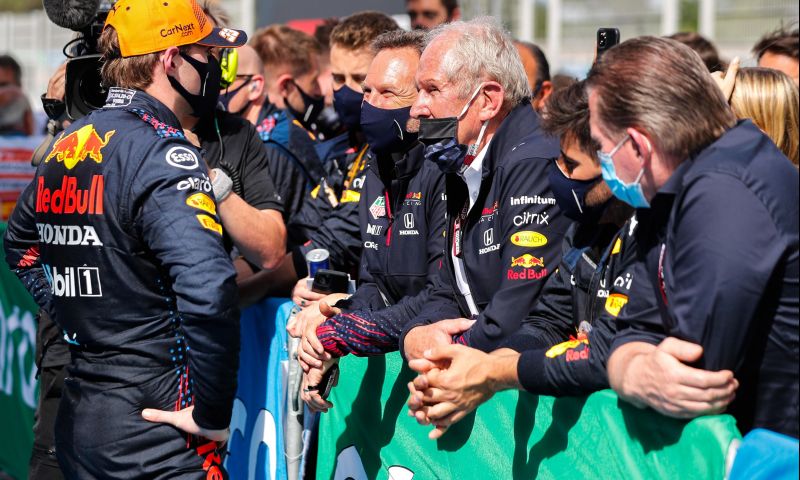F1 News

Can Red Bull's lawsuit against Mercedes succeed?
- GPblog.com
Recently news emerged that Red Bull Racing is taking legal action against Mercedes regarding the time penalty the Briton received for his incident with Max Verstappen in the first lap of the Silverstone Grand Prix. But on what grounds can Red Bull Racing take this legal action? What are the possibilities?
Helmut Marko had been quite clear earlier and Christian Horner was also adamant: "If you put a driver in hospital and you still win the GP, even with the penalty, it doesn't feel like a penalty," Horner said after Hamilton's win. Red Bull has 14 days to submit a letter of intent for the right to reassess to the FIA, according to Motorsport-magazin.com. If they decide to do so, the stewards of the race in question must first rule on whether the evidence presented is important and new. If so, the case will be reopened.
With that in mind, the chances of success for Verstappen's team seem marginal. The stewards already have plenty of camera footage and telemetry data. Even if unseen camera footage is released, the actual likelihood of it providing new insights is small. And even if the case is reopened, the likelihood of the sentence being overturned is again minimal.
In principle, the stewards can impose the following penalties:
- time penalties (5 or 10 seconds)
- a drive through penalty (or 20 seconds of time penalty if it is not paid during the race)
- a 10-second stop and go penalty (or 30-second time penalty if it is not met during the race)
- a variable time penalty
- a warning
- penalty carried over to the next race
- a disqualification
- a suspension of 1 race for the next race
On paper, it would be possible to impose a race ban after an accident, but the wilfulness of the accident would have to be proven. A similar case was tried by Ferrari after Sebastian Vettel collided with (again) Lewis Hamilton in Baku. There the stewards decided that the newly presented evidence of Ferrari was not new or sufficient enough.

